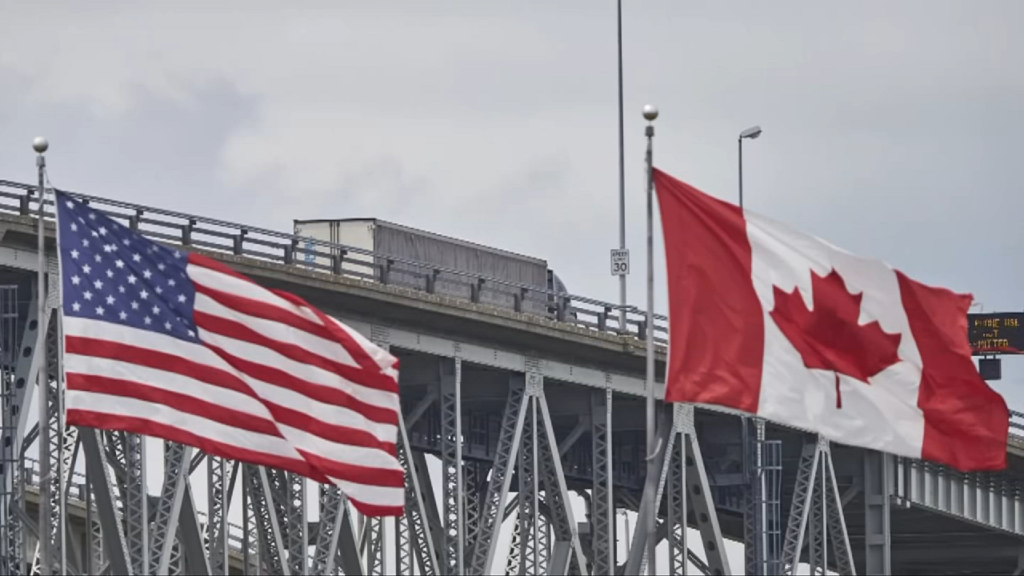
Children in Alberta and British Columbia returned to the classroom Monday as surging COVID-19 cases threatened to overwhelm hospitals in several provinces and prompted the United States to advise its citizens to “avoid travel” to Canada.
Quebec reported an all-time high of 2,554 patients in hospital with COVID-19, a rise of 118 from the previous day’s record of 2,436. Intensive care cases ticked down by nine for a total of 248.
The province also reported 26 more deaths from the disease, and 10,573 new COVID-19 infections, although PCR tests are reserved for certain high-risk groups. Quebec said nearly 20 per cent of tests came back positive.
Quebec also opened up appointments for third doses of the COVID-19 vaccine to those aged 40 and older on Monday, as the province prepares to expand eligibility to all adults aged 18 and up next week.
In Ontario, there were 2,467 people hospitalized with COVID-19, including 438 patients in intensive care, Health Minister Christine Elliott said on Monday, noting that not all hospitals report data from the weekend.
The province reported 9,706 new COVID-19 cases, but Public Health Ontario has qualified that this may be an undercount because of a policy making tests less accessible. The illness claimed 12 more lives, provincial officials said.
The rampant spread of the Omicron variant has stoked alarm across the border, where the U.S. Centers for Disease Control and Prevention issued a fresh Level 4 “avoid travel” advisory for Canada on Monday, citing a “very high” level of COVID-19 in the country and urging anyone who must go to be fully vaccinated.
That quickly prompted the State Department to revise its travel advisory, which had been at Level 3, “reconsider travel,” to upgrade its own advice to Level 4: “Do not travel to Canada due to COVID-19.”
Manitoba saw the number of patients in hospital with COVID-19 climb to 378, up 81 from Friday, including 38 people in intensive care. The province also reported 19 virus-related deaths.
In Newfoundland and Labrador, a swell of COVID-19 infections has overwhelmed its testing capacities in the past two weeks, forcing officials to send more than 6,635 swabs to labs in Winnipeg and Toronto between Dec. 29 and Jan. 6, said Health Minister John Haggie, who is recovering from the illness.
In addition to the 680 positive tests analyzed in outside labs, health officials said 455 new cases have been detected since Sunday, for a total of 1,135 cases reported Monday.
Prime Minister Justin Trudeau was set to speak with provincial and territorial leaders on Monday afternoon to discuss the mounting health crisis posed by the Omicron variant of COVID-19.
Ontario Premier Doug Ford planned to raise the provinces’ plea for more health-care funds with the prime minister, asking Ottawa increase its share of spending from 22 per cent to 35 per cent, to about $71 billion.
The federal government has committed to a 4.8 per cent increase, bringing the total for 2022-23 to about $45 billion.
Many provinces have delayed the return to in-person schooling as part of renewed efforts to rein in soaring case counts.
But the two westernmost provinces moved ahead with reopening classrooms on Monday, with officials arguing virtual learning presents its own risks to youth mental health.
While some parents in Alberta are relieved that students in Grades K-12 are returning to classes after an extended holiday break, many said they were concerned and frustrated about unclear instructions from the provincial government on how it plans to contain the spread of COVID-19 in classrooms.
Alberta Education Minister Adriana LaGrange has promised thousands of test kits will be delivered to students and parents in that province over the next few days.
However, Edmonton Public Schools and the Alberta Teachers’ Association have said there are still kids who won’t get them until days after they return to class, which could further exacerbate the surge of Omicron cases.
British Columbia’s top doctor has said that Monday’s return to school is “essential” for the emotional, physical and intellectual well-being of children, and told parents that safety measures have been put in place to mitigate the risks posed by Omicron.
Dr. Bonnie Henry acknowledged Friday that some families may feel uneasy about the move, but maintained that students are safer in the classroom than in some of the “unstructured settings that children are in outside of the school environment.”
– with files from Paola Loriggio in Toronto and James McCarten in Washington
This report by The Canadian Press was first published Jan. 10, 2022.




